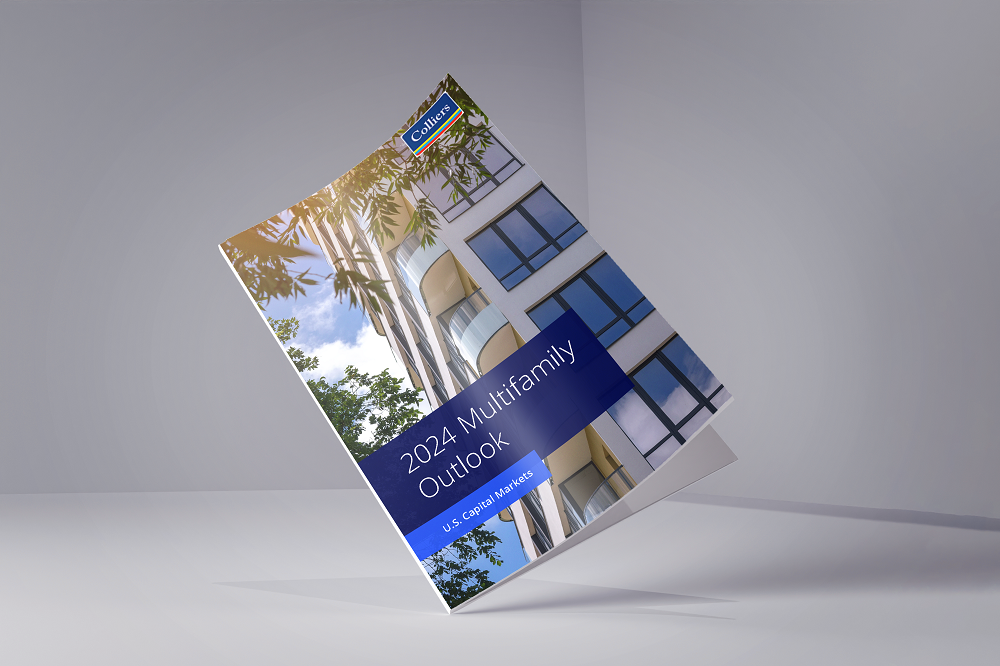Colliers Quick Hits
Colliers Capital Markets recently sat down with Michael Lirtzman, Head of Office Agency Leasing, U.S., and Matt Musselman, Senior Director, Office Positioning & Marketing, U.S., to discuss how landlords can stand out in the market.
| Colliers Capital Markets (CCM): The future of office is being painted with a broad brush. Do you feel the current negative headlines accurately portray the market? Michael Lirtzman (ML): The headlines are a disservice to most buildings. Office as an asset class is not going to die. Low-quality, dilapidated, Class C, Commodity — with a capital C — are going to suffer and may never recover. High-quality, well-located, strongly capitalized office will do fine, and the statistics already back this up, even in a depressed market. Class A and above is outperforming in every market across the country. Going forward, office will potentially be a story of the haves and the have-nots. |
“High-quality, well-located, strongly capitalized office will do fine, and the statistics already back this up, even in a depressed market. Class A and above is outperforming in every market across the country. Going forward, office will potentially be a story of the haves and the have-nots.”
| Matt Musselman (MM): Michael’s right.The pandemic’s effect on demand is forcing us to innovate and build a better experience for employees and occupiers. In the long term, this will be a good thing, and more brain-power-dependent companies will see the force-multiplier value of in-person engagement enhanced by next-gen space — we just need time and better economic tailwinds to catch up to this new expectation. CCM: Landlords facing a near-term loan maturity are in a tight spot. Should they be signing any deal they can? ML: Not necessarily. We have seen that some landlords who have no capital and think cutting rent is the solution have been invariably wrong. Cheap rent isn’t going to draw tenancy if the offering isn’t attractive. At the same time, if the offering is high-quality, amenitized, with a robust TI allowance or high-quality turnkey or spec suite, landlords will get the rent they need, and tenants will pay up. Spec suites are an important driving force. Tenants want to avoid capital expenditure wherever possible, and the landlords who provide these plug-and-play solutions, particularly targeted at smaller tenants, are seeing the majority of the absorption. We are starting to see that landlords are more readily able to convince lenders to participate in the expenditure with TI reserves, which was not always the case in the past. MM: It’s important that landlords don’t overlook tenants. Professional services, financial companies, and law firms are still signing leases. It isn’t just tech. Branding and marketing are critical to optimized positioning, as your property’s brand will likely be the first touchpoint a broker or tenant has with your building. First impressions matter in a world where attention is measured in milliseconds, and landlords need to consider what their “one thing” is. CCM: What are the most important amenities to occupiers and their employees? ML: The physical space is important, but so too is the service component. Property and amenity management has to be aligned with the physical improvements to better program and activate the spaces. Employers and tenants not only want the physical space of an amenity but also want it serviced at a high level. Food and beverage is also a critical component, as many downtowns are still recovering from a retail perspective; thus, landlords need to add F&B programs as part of their offerings to tenants. It’s important for landlords to understand that bigger isn’t necessarily better, but providing best-in-class amenities and services, such as personal training and state-of-the-art equipment, is a differentiator. |
“Property and amenity management has to be aligned with the physical improvements to better program and activate the spaces. Employers and tenants not only want the physical space of an amenity but also want it serviced at a high level.”
| CCM: What else are you advising? MM: Look to outdoor space if you can. It is highly desirable for occupiers and employees and ties in well with an overall health and wellness strategy. Outdoor space can be a signature item, that exclusive amenity that stands out. Examples include rooftop decks, individual suite access, or full-floor open-air amenity spaces. Clients need memorable moments; this is one example of doing just that. ML: Focus on the fundamentals. See the problems and challenges from the perspective of the tenant/employer, who is ultimately your customer as a landlord. Employers want people back in the office, but need to offer incentives that make people excited about getting back in. Matt calls it “earning the commute.” If you can do that as a landlord, then you have a much greater probability of recruiting and retaining tenants. All the bells and whistles we’ve discussed are part of that equation. But, as a landlord, if you cannot help tenants give their employees a compelling reason to come back to the office, you will not lease space in this environment. |





